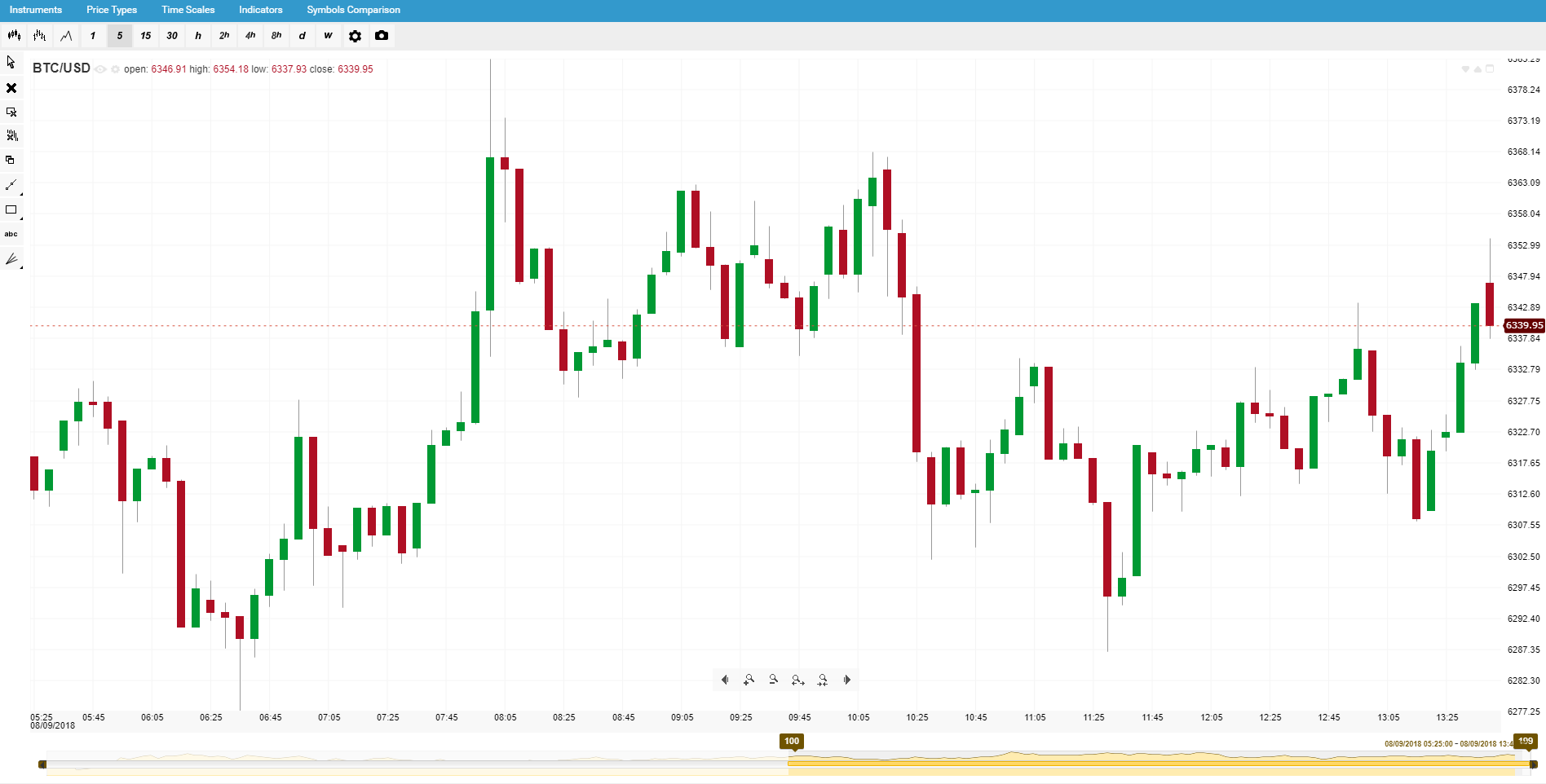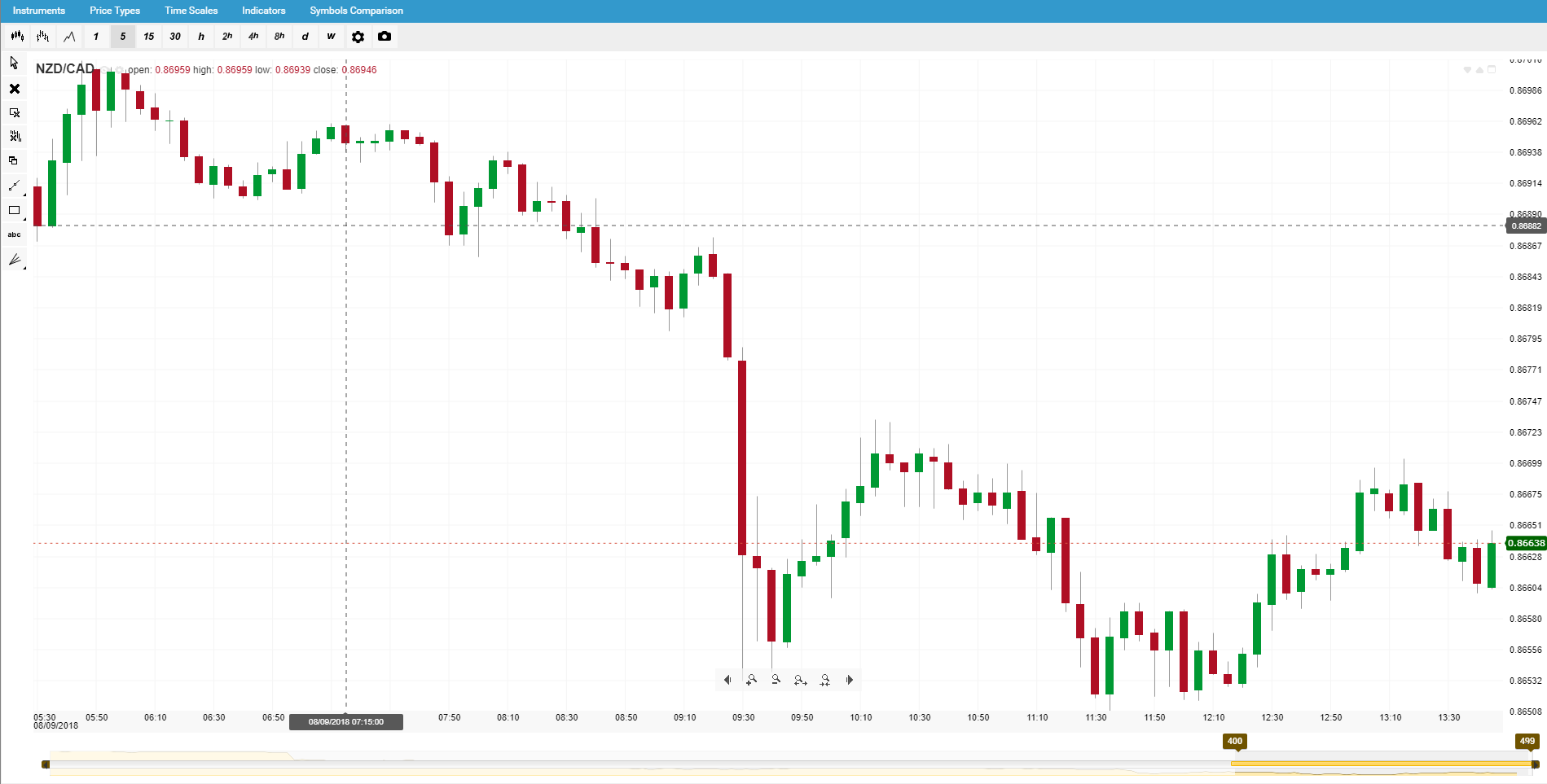How to make experience work for you
Practice makes perfect. There are few axioms that are more frequently repeated than that one. Probably because it actually works.
Trading though is completely different beast - a bull or a bear. When trading with a virtual balance, emotions such as fear, ego, greed and "revenge trading" are practically non-existent. Once your money is on the line though even someone that has months' worth of consistent returns - could easily choke when they go live. So how can you practice to become perfect?
Take it easy
Certain markets such as Cryptocurrencies, energy commodities and some currencies are extremely volatile. Although the term carries a negative connotation, volatility can actually benefit experienced traders and some strategies such as intraday may require some level of volatility for a return on the investment.
BTC/USD - example of volatility

Trading on less active markets can give you a chance to analyze and act without the pressure of constantly fluctuating price movement. Another benefit is that less volatile market generally moves less, so if you are the wrong side of a trade, you stand to lose less than if you were trading on a volatile market.
Experience
Most of the negative emotions traders experience are associated with losing. Experience will teach most traders that losing is part of the game. To stay viable and sustain your account, you must look at the big picture and not focus on individual losing trades.
NZD/CAD - example of less volatility

"I bought a company in the mid-90's called Dexter Shoe and paid $400 million for it. And it went to zero. And I gave about $400 million worth of Berkshire stock, which is probably now worth $400 billion. But I've made lots of dumb decisions. That's part of the game." ~ Warren Buffet.
To prove this point just this week even the Oracle of Omaha - Warren Buffet - lost $3.74 billion after U.S. stocks dropped for the third consecutive day. Although the amount he lost is probably worth the budget of most small countries (or a little less than the 3.8 billion dollars New Zealand's budget puts aside for capital investment), Buffet is still worth a staggering $86.5 billion dollars. You can see how in that context, although the losses are significant - they seem manageable.
Use your errors
Mistakes (or losses) are an opportunity for growth and learning. This is why its important to keep a trading journal and log all the reasons that lead you to opening a certain position, the fundamental or technical data that informed that trade. Think of it like athletes that watch themselves play previous games to refine their technic or form with the purpose to become more effective competitors.
The best boxer in history Mohamed Ali moved fast and hit hard - but was also extremely adaptable in the ring to changing situations.
Cool down and stretch
Most athletes know that a cool down period and stretching is an important part of recovery and muscle building. Trading in concept isn't that much different - if you are hurting you should take a break.
If you don't you risk serious injury (to your account instead of body). Some professional traders say that after three consecutive losses or wins they will stop for a moment and take a walk. This can help take you out of the frame of mind established by the series of trades and negate the potential for impulsive trading.
If you start feeling fear, greed or anger take over you, stand up, breath and maybe walk away for a moment. Of course, no matter what kind of exercises you do, partnering with the right broker is another important part of the equation. The right broker will offer you tools for risk management and the support necessary to gain a competitive edge.
This article was submitted by EasyMarkets




